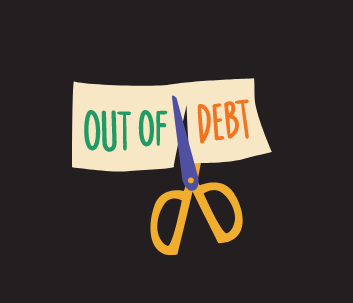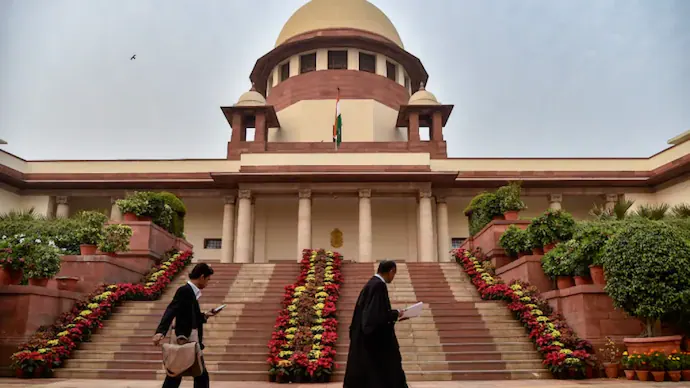Introduction
Credit card minimum payment due refers to the mandatory partial payment of the total outstanding bill amount that individuals must pay to the bank if they cannot pay the entire bill amount.
Credit cards offer the convenience of utilizing funds whenever needed, but they can sometimes lead to excessive spending. The option of a Minimum Amount Due instead of the full EMI may seem appealing, but it is a financial trap. Banks provide this option as a way to ensure partial payment when individuals are unable to pay the entire bill. However, it is highly recommended to pay the full EMI rather than relying on the Minimum Amount Due. This article explores the reasons behind this recommendation and highlights the potential drawbacks of opting for minimum payments.
What is Minimum Amount Due?
The Minimum Amount Due refers to the mandatory partial payment of the total outstanding bill amount. The minimum Amount Due is that individual must pay to the bank if they cannot settle the entire bill. It is typically calculated as 5% of the total outstanding balance on the credit card statement’s issuance date. However, additional charges may be added to the minimum amount due in certain cases. For instance, interest amounts may be included if the user converts their purchases to EMIs. Also, if there are any unpaid minimum balances from previous bills.
Why Paying Only the Minimum Amount Due Is Not Advisable
Loss of Interest-Free Credit Period:
Paying the entire balance before the due date allows individuals to enjoy an interest-free credit period of up to two months. It also provides an additional three-week period from the credit card statement issuance date to clear outstanding balances.
Accumulation of High-Interest Charges:
Banks charge high-interest rates on credit cards, often exceeding 40%. While there may be no late fees, the principal amount keeps increasing. It is recommended to either pay the full EMI or not pay at all. As habitual payment of the Minimum Amount Due can result in accumulating significant interest charges.
Absence of Interest-Free Credit Period:
By paying only the minimum amount due, individuals do not receive an interest-free credit period. Conversely, paying the outstanding amount in full provides an interest-free credit period from the bank. Opting for minimum payments incurs additional interest charges on the remaining balance.
Accrued Interest Over Time:
Consistently paying only the minimum amount due leads to accumulating interest on the outstanding balance over time.
Compound Interest:
Banks apply compound interest, which means that by paying only the minimum amount due, individuals will accumulate interest on the principal amount, resulting in further interest charges.
Impacts of Paying Only the Minimum Amount Due Over a Prolonged Period
Paying only the minimum amount due for an extended period can have negative consequences, including:
- High-Interest Charges: Continuous payment of the minimum amount due results in accumulating high-interest charges on the outstanding amount.
- Absence of Interest-Free Credit Period: There is no interest-free credit period when minimum payments are consistently made.
- Credit Limit Reduction: Banks may reduce the credit limit to the unpaid amount or even block the card after multiple warnings.
- Principal Amount Neglected: The payment of the minimum amount due mainly consists of interest charges (around 70%) rather than reducing the principal amount (approximately 30%).
Benefits of Paying Only the Minimum Amount Due
While there are no substantial realistic benefits to paying only the minimum amount due, some individuals prefer this option due to perceived advantages:
- Interest-Only Payments: Paying the minimum amount due ensures that only the interest is paid, with a small portion deducted from the principal. Additionally, no additional fees are charged for minimum payments.
- Protection of Credit Score: Paying at least the credit card’s minimum amount due on time prevents negative reporting to credit bureaus for irregular credit repayment behavior, thereby preserving the credit score.
Conclusion
While it may be acceptable to pay the minimum amount due temporarily when facing financial constraints, it is essential to recognize its limitations. Opting for minimum payments incurs higher interest charges and eliminates the interest-free credit period. If individuals frequently find themselves relying on minimum payments, it is crucial to revisit their budget, plan expenses beforehand, and consider alternatives such as personal loans or balance transfers to manage credit card overdue. By understanding the potential pitfalls and adopting responsible financial practices, individuals can maintain their financial well-being and make informed decisions regarding credit card payments.
Frequently Asked Questions
What is the minimum payment due?
The minimum payment due refers to the mandatory partial payment of the total outstanding bill amount that individuals must pay to the bank if they cannot pay the entire bill amount.
What are the benefits of paying only the minimum amount due?
While there are no significant benefits to paying only the credit card minimum amount due, individuals may perceive advantages such as paying only the interest and avoiding additional fees. It also protects the credit score to some extent.
How do lenders calculate the minimum payment due amount?
Lenders generally calculate the minimum payment due as 5% of the total outstanding balance on the credit card statement’s issuance date. However, lenders may add additional charges, such as interest on converted purchases to EMIs or unpaid balances from previous bills.
What will happen if I pay only the minimum amount due for a long time?
Paying only the credit card minimum amount due for an extended period leads to accumulating high-interest charges on the outstanding amount. It eliminates the interest-free credit period, reduces the credit limit, and mainly pays interest rather than reducing the principal amount.
Best Loan Settlement Company in Noida – Click Here
Best Loan settlement company in Noida



